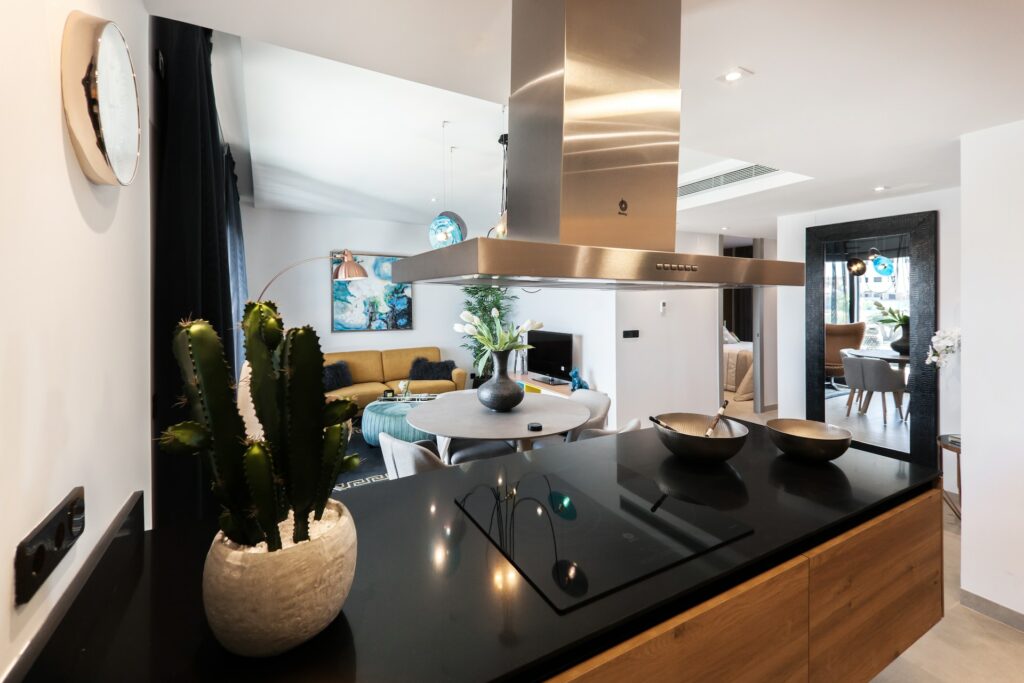Welcome to the world of smart homes, where technology intertwines seamlessly with our daily lives to create a truly futuristic living experience. From voice-activated assistants to automated security systems, smart homes are revolutionizing the way we interact with our living spaces. In this article, we know the future of smart homes, exploring the latest innovations and the endless possibilities they offer.
Smart homes have come a long way since their inception, and the advancements made in recent years have set the stage for an incredible future. With rapid technological progress, we can expect a plethora of innovations and possibilities in the realm of smart homes.
Most Exciting Smart Home Developments

1. Rise of Artificial Intelligence (AI) Assistants
In the future, AI assistants will become even more intelligent and intuitive, adapting to our preferences and needs. These virtual companions will have the ability to learn our routines, anticipate our actions, and provide personalized suggestions. Whether it’s adjusting the thermostat, ordering groceries, or playing our favorite tunes, AI assistants will be our reliable companions, simplifying our daily tasks and enhancing our comfort.
2. Integration of the Internet of Things (IoT)
The Internet of Things (IoT) is the interconnection of devices and appliances through the Internet. In the future, smart homes will seamlessly integrate IoT, allowing us to control and monitor various aspects of our homes remotely. Picture this: you’re on vacation, and you suddenly remember that you forgot to turn off the lights. With IoT integration, you can easily access your smart home system through your smartphone and switch off the lights, ensuring energy efficiency and peace of mind.
3. Enhanced Energy Efficiency
As sustainability becomes an increasingly important global concern, smart home plays a role in reducing energy consumption. Innovations such as smart thermostats, energy-efficient appliances, and automated lighting systems will optimize energy usage in our homes. Through intelligent algorithms, these smart home systems will learn our energy consumption patterns and make adjustments accordingly, ultimately leading to significant energy savings and a greener future.
4. Voice Control Everywhere
Imagine a world where you can control every aspect of your home simply by speaking. Voice control technology has already made its way into our lives with devices like Amazon Echo and Google Home. In the future, voice commands will become even more prevalent, seamlessly integrating into our homes. From adjusting the lighting to operating kitchen appliances, voice control will provide us with a hands-free and convenient way to interact with our smart homes.
5. Advanced Home Security Systems
Security is a top priority for homeowners, and smart homes offer unparalleled safety features. In the future, home security systems will become even more advanced, leveraging technologies such as facial recognition, biometric authentication, and real-time video monitoring. These systems will provide comprehensive protection, ensuring the safety of our loved ones and our valuable possessions.
6. Personalized Ambient Environments
The future of smart homes will be all about creating personalized ambient environments that cater to our moods and preferences. Imagine walking into your living room, and the lighting, temperature, and music automatically adjust to create the perfect ambiance for relaxation or entertainment. Smart homes will have the ability to create immersive experiences tailored to our desires, making everyday life more enjoyable and enriching.
FAQs
1. What are the key benefits of smart homes?
Smart homes offer increased convenience, improved energy efficiency, enhanced security, and personalized living experiences.
2. Will smart homes be affordable for everyone in the future?
With advancing technology and increased market competition, the cost of smart home systems is expected to decrease, making them more accessible to a broader range of homeowners.
3. Are smart homes vulnerable to hacking?
While any internet-connected device carries some degree of risk, smart home manufacturers are continuously working to enhance security measures and protect against cyber threats. It is essential to follow best practices such as using strong passwords and keeping software up to date.
4. Can smart homes adapt to different family members’ preferences?
Yes, smart homes can recognize individual users and tailor the experience to their preferences. Whether it’s adjusting the temperature, playing personalized playlists, or providing customized lighting, smart homes can cater to the needs of different family members.
5. What happens if the power goes out in a smart home?
Most smart home systems have backup power options, ensuring functionality during power outages. many devices have battery backups or can be manually operated in case of emergencies.
6. Are smart homes only for tech-savvy individuals?
While a basic understanding of technology can be helpful, smart homes are designed to be user-friendly and intuitive. Manufacturers strive to make the setup and operation of smart home systems as accessible as possible for all users.
Conclusion
The future of smart homes is filled with boundless innovations and possibilities. From AI assistants to IoT integration and enhanced energy efficiency, these advancements will transform the way we live, making our homes more intelligent, comfortable, and secure. As technology continues to evolve, we can look forward to a future where smart homes seamlessly adapt to our needs and enrich our daily lives. So, get ready to embrace the future of smart homes and unlock the extraordinary potential they hold.


